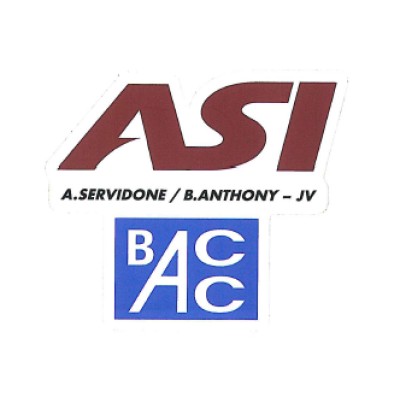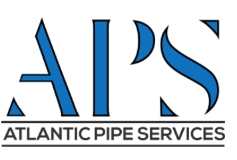Controller
About This Job
The Controller is responsible for overseeing all financial and accounting operations within a commercial construction environment. This role supports strategic decision-making by delivering accurate financial reporting, effective cost control, and project accounting. The Controller works closely with senior leadership and project management to ensure financial health, regulatory compliance, and profitability across all commercial construction projects
•
To perform this job successfully, an individual must be able to perform each essential duty satisfactorily, with or without special accommodation.
•
Lead the accounting team in managing the general ledger, accounts payable and receivable, payroll, and job cost accounting.
•
Prepare and analyze monthly, quarterly, and annual financial statements.
•
Develop and manage annual budgets, forecasts, and cash flow plans, with a focus on commercial project timelines and costs.
•
Maintain detailed project job costing and project schedules, including revenue recognition based on percentage-of-completion.
•
Collaborate with project managers to track project performance, cost-to-complete, change orders, billing, and collections.
•
Ensure compliance with construction contracts, lien laws, insurance, bonding, and licensing requirements.
•
Supervise the preparation of draws, pay applications, and compliance documents for commercial clients, lenders, and general contractors.
•
Oversee internal controls, accounting procedures, and policies to ensure financial integrity and mitigate risk.
•
Coordinate annual audits and interface with banks, auditors, and insurance providers.
•
Mentor and manage accounting staff, fostering professional development and cross-functional collaboration.
Qualifications:
•
Bachelor’s degree in accounting or finance; CPA or CMA preferred.
•
5+ years of accounting experience.
•
In-depth knowledge of job cost accounting.
•
Familiarity with construction accounting software such as Vista or Procore.
•
Proven ability to analyze financial data and translate it into actionable insights for operations.
•
Strong interpersonal and communication skills, with a collaborative mindset.
•
Knowledge of relevant federal, state, and local tax regulations and industry standards.
Similar Jobs
Controller
Elexco, Inc.
Seymour, WI
2 days ago

Controller
Zupt, LLC
Houston, TX
2 days ago

Controller
Spartan Capital Group LLC
$115000 - $130000
Athens, MI
2 days ago

Controller
Mashburn Construction
South Carolina, United States
2 days ago
UR
Controller
Upstate Roofing & Painting, Inc.
$129343 - $170100
Rochester, NY
4 days ago
Controller
Roof Tech
Harvey, LA
4 days ago

Controller
A. Servidone Inc. / B. Anthony Construction Corp. JV
$125000 - $175000
Castleton-On-Hudson, NY
4 days ago
CF
Controller
Carver Floor & Tile
Cottondale, AL
4 days ago
Controller
Copeland
Ava, MO
5 days ago

Controller
Petrobras
Houston, TX
8 days ago

Controller
Enwin Utilities
Windsor, ON
9 days ago

Controller
Hydro
Cressona, PA
13 days ago

Controller
Del Industrial Metals
Mississauga, ON
16 days ago

Controller
Atlantic Pipe Services
Sanford, FL
17 days ago
Controller
CAB Construction Co.
Mankato, MN
19 days ago

Controller
Gerdau
Selkirk, MB
23 days ago
Controller
MUZA METAL PRODUCTS
Oshkosh, WI
25 days ago
Controller
Panthalassa
$150000 - $190000
Portland, OR
25 days ago

Controller
Integrated Steel, Inc
$65000 - $90000
Grand Forks, ND
26 days ago
Controller
Kairos Power
$209400 - $261800
Alameda, CA
28 days ago
Trending Jobs

Electrical Engineer
Dudley Staffing
$55 - $75
Canonsburg, Pennsylvania
3 months ago
Accounts Payable Clerk
$65000 - $65000
Dallas, Texas
4 days ago
DM
Apprentice Lineman
Delta Montrose Electric Association
Montrose, CO
8 days ago

Attorney
Toeppich & Associates
Houston, Texas
about 1 year ago
Apprentice Lineman I
San Patricio Electric Cooperative, Inc.
Sinton, TX
16 days ago
Associate Attorney
Buffalo Biodiesel Inc.
Buffalo, NY
15 days ago
Solar Electrician
MN8 Energy
California, United States
30 days ago

Sr. Polymer Scientist
ExxonMobil
Baytown, TX
30 days ago

Oil and Gas Land and Title Analyst - SAM Associate II
Bank of America
Dallas, Texas
25 days ago
Assistant General Manager, Navy Yard Electric Utility
$108000 - $108000
Philadelphia, Pennsylvania
3 days ago

Quality Engineer
Jedco Inc.
Grand Rapids, MI
26 days ago

contract landman
HPS Oil & Gas Properties
Lafayette, Louisiana
2 months ago

Finishing Helper Entry Level- Dayshift
Bonnell Aluminum
$41600 - $41600
Carthage, TN
26 days ago
Summer 2025 Student Intern - IT
Entergy
New Orleans, LA
25 days ago
SD
Service Manager
Supertech Diesel Truck Specialists
Langley, BC
29 days ago

Senior Landman
Greenlake Energy
Austin, Texas
23 days ago
2025 Summer Internship - Engineering
Gerdau North America
Charlotte, NC
24 days ago
SD
Service Manager
Supertech Diesel Truck Specialists
Nanaimo, BC
29 days ago

Assembler/Production
Uptalent
$37440 - $49920
Oklahoma City, OK
25 days ago
Contracts Administrator
Third Coast
$70000 - $85000
Houston, Texas
8 days ago